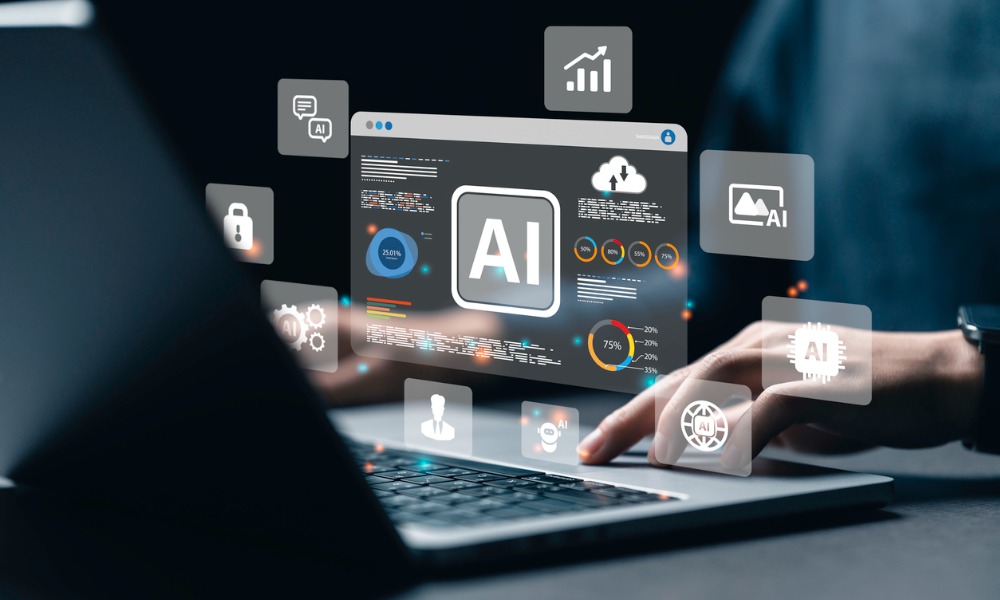Workers globally want more generative AI training now, finds report

"The adoption rate of generative AI has been nothing short of remarkable.”
So said John Romeo, CEO of the Oliver Wyman Forum.
Since the launching of ChatGPT, adoption of this version of artificial intelligence has grown in a historic way.
"ChatGPT achieved mass adoption in less than one year -- a stark contrast to the internet, which took 17 years, smartphones 21 years, and electricity which took three decades, but training is not keeping up and we are facing an AI productivity disconnect,” said Romeo.
Between June and November 2023, doctors, nurses and life-sciences employees increased weekly use by 264%, reported the Oliver Wyman Forum.
Weekly adoption among pink-collar education employees grew 144%, and blue-collar retail worker use increased by 71%.
Nearly all (96%) employees said generative AI can benefit their jobs, and more than 50% of employees said they now use generative AI weekly at work. In Canada, 35% use AI at work, with 9% using it daily.
One Canadian academic predicts “more intense integration” of AI in HR systems for 2024.
Why generative AI is not improving productivity
And generative AI has helped 61% of workers across collars become more productive, according to Oliver Wyman’s report titled How Generative AI is Transforming Business and Society, based on a survey of 25,000 respondents across 16 countries, conducted June to November 2023.
However, 32% said that it has not helped with their productivity and 7% even claimed that their productivity suffered due to generative AI use.
The top reasons why generative AI has not improved productivity for many are:
- “Learning about AI adds stress and takes time because I am not proficient with the technology” (22%)
- “AI tools give me unsatisfactory output, so I spend extra time reviewing, regenerating output, or editing the output” (20%)
- “Following company guidelines for AI lengthens the process to complete tasks” (20%)
“When individual workers were introduced en masse to generative AI tools such as ChatGPT and DALL-E, the technologies were so intuitive that many first-time users assumed they (or their employees) could teach themselves,” read part of the report.
“However, based on our data, less than one-third of generative AI users report employing best practices for use: Only 32% of generative AI-using employees say they use prompt engineering, and only 26% say they clean data before use with generative AI tools. Alarmingly, almost one in five report not using any best practices at all.”
Overall, 39 per cent of workers globally are feeling overwhelmed by the amount of change AI may bring to their jobs in the future, according to a previous LinkedIn report.
Generative AI has even produced erroneous outputs for workers, according to Oliver Wyman.
In Canada, 37% of workers have seen incorrect AI-generated output at work. The same percentage of workers in the U.S., Italy, Spain and France have the same claim.
The number is even higher in India (55%), Singapore (54%), China and Hong Kong (53%) and the United Arab Emirates (52%).
Wanted: generative AI training
The lack of productivity with generative AI use may be linked to insufficient training, according to the report.
Currently, 57% of employees report they are currently receiving insufficient AI training from their employer. Among white-collar employees, 80% want more or better AI training, but only 64% said they currently receive it.
And while AI and big data ranks at the top of employees’ reskilling priorities, this is only fourth in employers’ list.
"Automation is no longer just a narrative of blue-collar workers,” said Ana Kreacic, COO of the Oliver Wyman Forum and chief knowledge officer of the Oliver Wyman Group.
“Many white-collar workers fear their roles will become displaced with generative AI, and this anxiety is having a direct impact on productivity. It's a misconception for businesses to wait a year or two and hope to hire a fully generative AI trained workforce. Companies need to reskill the employees they have now by focusing on areas with the most near-term applications."
Over half of Canadian professionals are even using the new technology at work despite their employer not having AI workplace policies.




